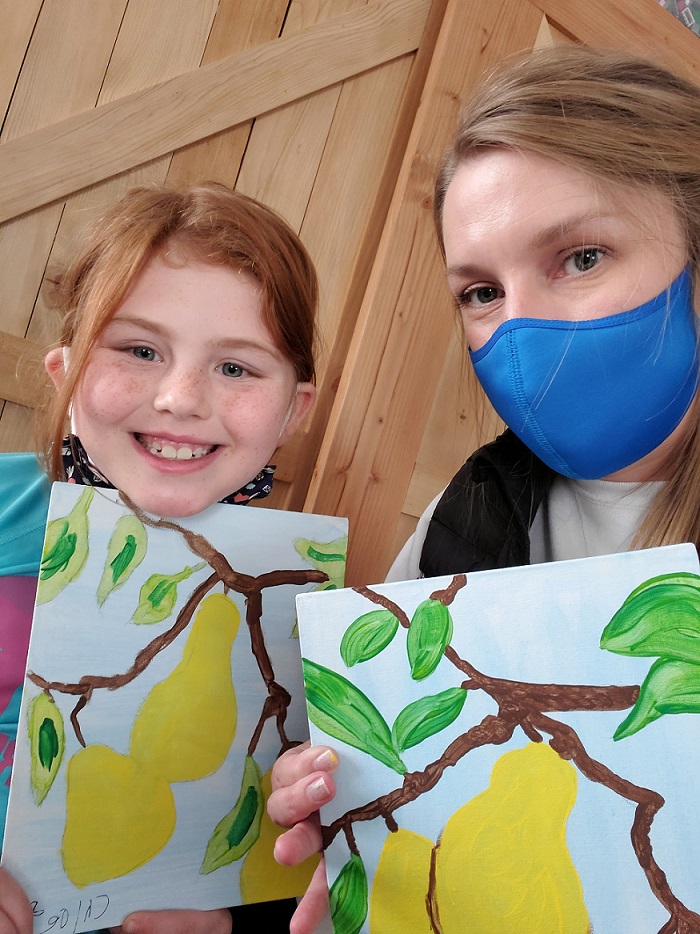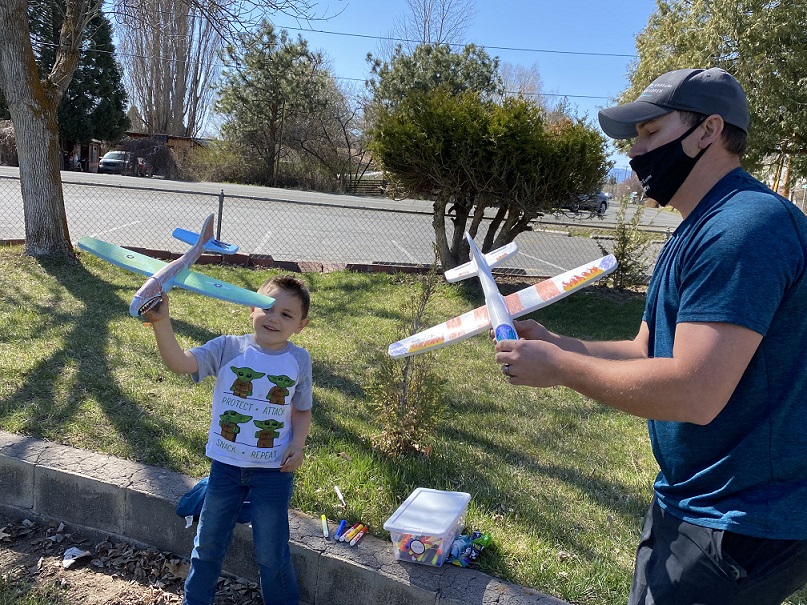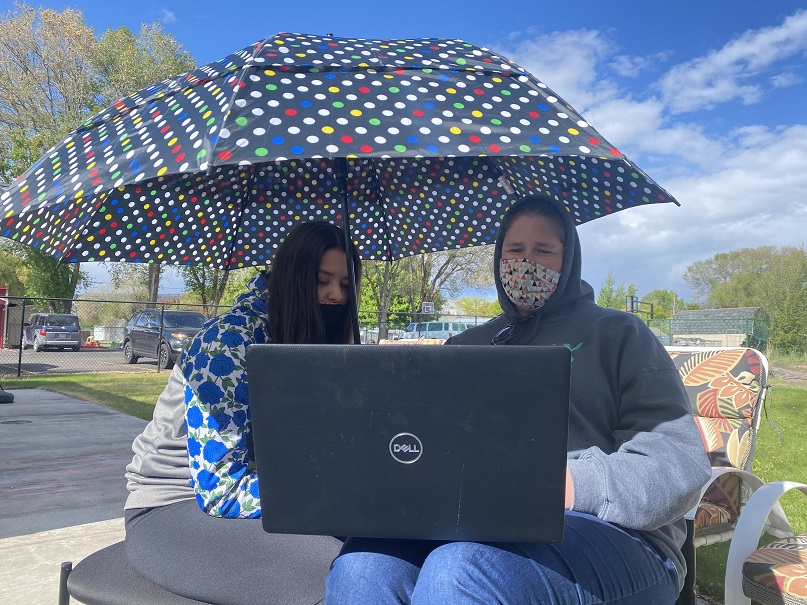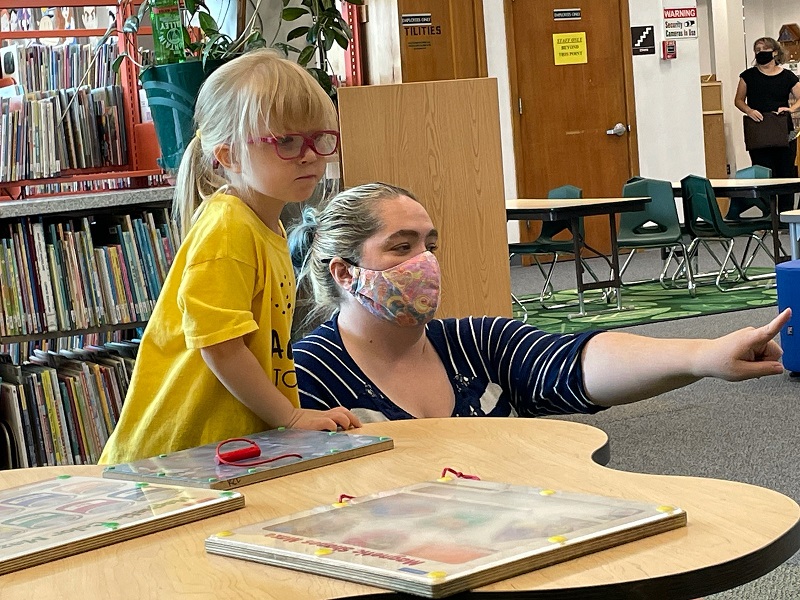
Friends of the Children-Klamath Basin: Stays With Kids “No Matter What”
Friends of the Children—Klamath Basin is an organization that provides mentors to children. Most mentoring organizations offering this service has volunteers, working with kids an hour here or there in their spare time. Unlike most organizations, Friends of the Children pays its mentors, believing that the best mentors are paid mentors. Instead of grabbing an hour with the kids after a long, hard day at work, “Friends” devote the bulk of their day to mentoring. For them, it’s a full-time profession.
This is an impressive model for mentoring by any standard. As such, we felt Friends of the Children—Klamath Basin to be worthy of support, by way of our small grants program. We spoke to Executive Director Amanda Squibb to learn more about this work:
Kars4Kids: Tell us about your demographic—the youth you serve. How many kids are you helping?
Amanda Squibb: We serve children who face multiple risk factors and few protective factors. We currently have capacity for 51. All the children we enroll have faced extreme challenges by the time they are in kindergarten and benefit from the consistent presence of a trauma-trained, caring mentor to help build their resiliency and empower them to reach their goals.
Kars4Kids: Can you define ACE for our readers, please?
Amanda Squibb: ACE is an acronym for Adverse Childhood Experience, which is a potentially traumatic experience in the childhood years, such as neglect or violence, or a parent’s involvement with the justice system. The children we serve typically have experienced multiple ACEs before they reach kindergarten. Research shows that ACEs can lead to development problems, lifelong health problems, and more. The good news is that the impact of ACEs can be mitigated, and that’s the work we are privileged to do through our mentoring model.
Kars4Kids: You pay your mentors. How come? Do you offer training? How many “friends” do you have on staff?
Amanda Squibb: We rely on volunteers for our board of directors and many other aspects of our work, but it is important that our mentors be paid professionals. This is a hallmark of our model because volunteers may lack expertise with trauma or be short on free time. Our paid mentors, called Friends, can commit consistent time to youth and bring extensive training to every interaction with them. We have 5 full-time Friends and 2 part-time Friends right now.

Kars4Kids: Your website states that you work with children “from kindergarten through graduation, 12+ years, no matter what.” Where does the plus come in? Do you sometimes continue working with kids past high school graduation? What about the “no matter what” part? What kind of obstacles might need to be overcome to keep things going?
Amanda Squibb: We enroll children ages 4-6. We mentor them through high school graduation, so children enrolled before first grade get more than 12 years with us (12+). We will stay with them no matter what happens during those years—even a global pandemic!
Kars4Kids: What are the benefits of long-term mentoring? What kind of impact are you seeing in your mentees?
Amanda Squibb: Before establishing Friends of the Children, our network’s founder Duncan Campbell commissioned research to learn the best way to help young kids overcome obstacles and realize their potential. The research showed that the strongest single protective factor is a close, healthy, and sustained relationship with a caring adult. So the Friends model of youth support is built on long-term mentoring relationships—a promise of 12+ years to every child. Even if other supports come in and out of their lives, even if they move from home to home, our kids have a Friend for the long haul. Because of that long-term commitment, youth feel a sense of belonging and are able to invest time and trust. They know we are not going to leave them. Our outcomes speak for themselves: Of our graduates, 100% remain free of the juvenile justice system, 96% postpone parenting until after the teen years, and 89% earn a high school diploma or GED.
Kars4Kids: Your branch of the organization was founded in 2000, long enough to have graduates of your program. Have any of your graduates come back to serve as “friends” for the next generation?
Amanda Squibb: Our graduates have not yet returned as Friends; that would be wonderful to see!

Kars4Kids: Tell us about your 9 Core Assets approach.
Amanda Squibb: We help ensure positive social-emotional development and a foundation for future success by instilling 9 research-based Core Assets. The asset of Hope, for example, has been shown to ward off or reduce anxiety and depression. Friends are intentional about incorporating all 9 assets into their activities and conversations with youth. This year we even held a Core Asset coloring contest and turned winning designs into sticker decals so that youth see them daily on their water bottles and notebooks.
- Growth Mindset: I love learning and know that my abilities will improve through dedication and effort.
- Belonging: I understand who I am, have a place where I feel accepted and know that my contributions count.
- Hope: When I have tough times, I believe it can get better.
- Problem Solving: I know how to weigh the pros and cons and make a decision.
- Perseverance & Grit: I work hard through challenges and finish what I start.
- Self-Management: I know how to manage my feelings and take care of myself in a healthy way.
- Self Determination: I believe in myself and am able to set goals and achieve them.
- Find Your Spark: I use creativity to explore my passions.
- Positive Relationship Building: I get along well with others and am able to find people to support me.
Kars4Kids: How did the pandemic affect your operations?
Amanda Squibb: The pandemic has affected everything we do, from how we raise funds to how we hold staff meetings. It radically changed mentoring activities, of course, because Friends and youth couldn’t always be together in classrooms, in our clubhouse, or indoors at all! I’m so proud of the many ways our Friends developed creative ways online and outdoors to stay connected with kids, and that we’ve added new supports to meet new challenges, such as a tutor to help with distance learning challenges. Our mission says that we’re committed to kids “no matter what,” and the pandemic showed how true that is.
Kars4Kids: Can you talk about some of the ways that “friends” assist the families of the children in your program?
Amanda Squibb: The more stable families are, the more youth can thrive. So while Friends’ priorities are to work with program kids, they always try to respond to the needs of caregivers, from providing resource referrals, to helping them navigate tricky systems like special education. During the pandemic, family needs increased because of new financial, emotional, and academic challenges, and Friends stepped up with more direct supports, such as deliveries of food and supplies for caregivers, program youth, and siblings. This year we’re thankful to be adopting a Two-Generation (2Gen) model of mentoring support that equips us to deepen our family supports through a Family and Community Engagement Specialist. The 2Gen model is in place and successful at many Friends of the Children chapters, and we’re excited to see how it will amplify our impact on program youth and extend our reach to their siblings as well.

Kars4Kids: What’s next for Friends of the Children-Klamath Basin?
Amanda Squibb: We’ve just started drafting a 3-year strategic plan that will guide our work. One component will be the acquisition of a larger clubhouse where we can better operate and potentially expand our program, which has more than doubled in size since its inception in 2000. Stay tuned!